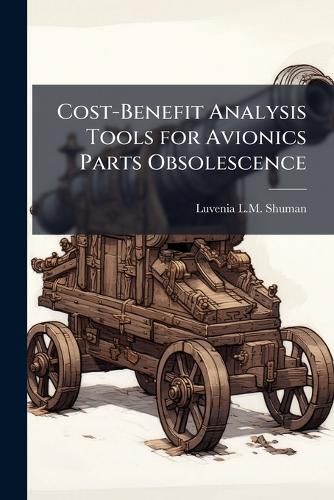Readings Newsletter
Become a Readings Member to make your shopping experience even easier.
Sign in or sign up for free!
You’re not far away from qualifying for FREE standard shipping within Australia
You’ve qualified for FREE standard shipping within Australia
The cart is loading…






This title is printed to order. This book may have been self-published. If so, we cannot guarantee the quality of the content. In the main most books will have gone through the editing process however some may not. We therefore suggest that you be aware of this before ordering this book. If in doubt check either the author or publisher’s details as we are unable to accept any returns unless they are faulty. Please contact us if you have any questions.
Obsolescence management, an ever-increasing topic in the Department of Defense, is not new. Since the service life of military systems is much longer than commercial systems, maintaining military systems when parts and components go out of production remains a sustainment challenge. Typically, resolving obsolete parts problems are incorrectly identified as reliability and maintainability issues that provide no improved capability or reduced cost; the primary benefit is continued sustainability of the existing system. Since loss of a capability is not an option, maintaining the capability without a part redesign does require increased cost for the commercial market to support a military-unique application. In addition, constrained defense funding will necessitate prudent use of limited funding to balance current systems maintenance and new systems acquisition. The specific objective of this project is to show the need for automated cost-benefit analysis tools to assist program/item managers in identifying the cost savings associated with resolving obsolete parts problems.
This work has been selected by scholars as being culturally important, and is part of the knowledge base of civilization as we know it. This work was reproduced from the original artifact, and remains as true to the original work as possible. Therefore, you will see the original copyright references, library stamps (as most of these works have been housed in our most important libraries around the world), and other notations in the work.
This work is in the public domain in the United States of America, and possibly other nations. Within the United States, you may freely copy and distribute this work, as no entity (individual or corporate) has a copyright on the body of the work.
As a reproduction of a historical artifact, this work may contain missing or blurred pages, poor pictures, errant marks, etc. Scholars believe, and we concur, that this work is important enough to be preserved, reproduced, and made generally available to the public. We appreciate your support of the preservation process, and thank you for being an important part of keeping this knowledge alive and relevant.
$9.00 standard shipping within Australia
FREE standard shipping within Australia for orders over $100.00
Express & International shipping calculated at checkout
Stock availability can be subject to change without notice. We recommend calling the shop or contacting our online team to check availability of low stock items. Please see our Shopping Online page for more details.
This title is printed to order. This book may have been self-published. If so, we cannot guarantee the quality of the content. In the main most books will have gone through the editing process however some may not. We therefore suggest that you be aware of this before ordering this book. If in doubt check either the author or publisher’s details as we are unable to accept any returns unless they are faulty. Please contact us if you have any questions.
Obsolescence management, an ever-increasing topic in the Department of Defense, is not new. Since the service life of military systems is much longer than commercial systems, maintaining military systems when parts and components go out of production remains a sustainment challenge. Typically, resolving obsolete parts problems are incorrectly identified as reliability and maintainability issues that provide no improved capability or reduced cost; the primary benefit is continued sustainability of the existing system. Since loss of a capability is not an option, maintaining the capability without a part redesign does require increased cost for the commercial market to support a military-unique application. In addition, constrained defense funding will necessitate prudent use of limited funding to balance current systems maintenance and new systems acquisition. The specific objective of this project is to show the need for automated cost-benefit analysis tools to assist program/item managers in identifying the cost savings associated with resolving obsolete parts problems.
This work has been selected by scholars as being culturally important, and is part of the knowledge base of civilization as we know it. This work was reproduced from the original artifact, and remains as true to the original work as possible. Therefore, you will see the original copyright references, library stamps (as most of these works have been housed in our most important libraries around the world), and other notations in the work.
This work is in the public domain in the United States of America, and possibly other nations. Within the United States, you may freely copy and distribute this work, as no entity (individual or corporate) has a copyright on the body of the work.
As a reproduction of a historical artifact, this work may contain missing or blurred pages, poor pictures, errant marks, etc. Scholars believe, and we concur, that this work is important enough to be preserved, reproduced, and made generally available to the public. We appreciate your support of the preservation process, and thank you for being an important part of keeping this knowledge alive and relevant.